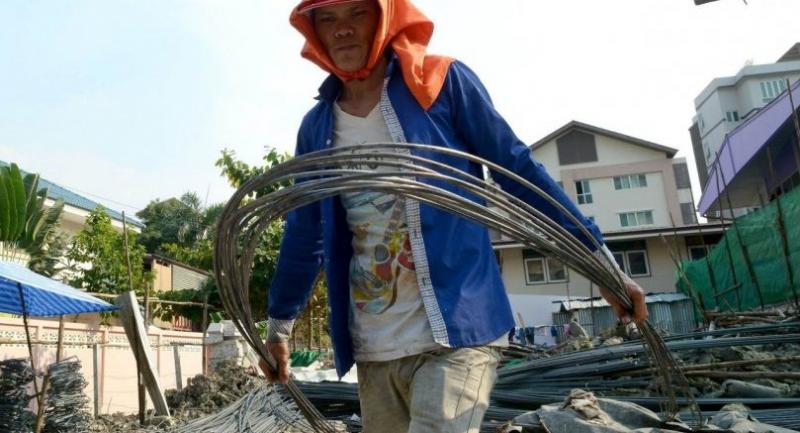Low-income households struggle under rapidly mounting debt

THAI workers have shouldered ever-higher household debt in the past 10 years as their incomes have not been adequate to meet their expenses, according to a survey.
Thai workers’ household debt averaged Bt91,064 per household in 2010 and jumped 6 per cent per year to Bt158,856 per household in 2019, according to a University of Thai Chamber of Commerce survey.
Around 95 per cent of workers surveyed had household debts of Bt158,856 per month. Of the total, about 58 per cent were borrowed from the formal sector and the balance from the informal sector, the survey said. Most of the borrowings were meant for daily expenses, vehicles and medical expenses.
The university’s Centre for Economic and Business Forecasting conducted the survey on workers who earned less than Bt15,000 per month.
Thanavath Phonvichai, director of the centre, said that everything in the economy will be reflected in the labour market. If the labour market sees a gloomy economy, it means measures or the economic situation are not sufficiently efficient.
A higher debt burden has led to higher defaults, at 80.3 per cent in the past one year, up from 69.9 per cent in 2010, indicating the country’s economy has not been in good shape, he said.
About 29.6 per cent of the workers surveyed see the economy as “very bad”, while 57.7 per cent were concerned.
According to the surveyed workers, the first priority of the government should be to control the cost of living or increase the daily minimum wage.
Thanavath said the workers understood the difficulties of business operators, so they wanted a solution to the cost of living issue instead of wage rises.
The workers were also afraid of changing their jobs, as 48 per cent found it difficult to get alternative jobs.
Meanwhile, Thanavath said uncertainty in the formation of the new government after the election could hurt the Thai economy, particularly in drawing foreign investment.
If Thailand does not get a new government soon, its economic growth may slide to 3.5 per cent in the latter half of this year, down from the centre’s estimate of 4 per cent. This could directly affect low-income workers, as they may be able to work fewer hours or there could be layoffs if economic activities decline. This will again increase their debt burden.
“It depends on how soon the [new] government will be formed. The economy may grow 3.5 to 3.6 per cent. We believe the formal debt system is mature. They [workers] may go for more informal borrowings,” Thanavath said.
He urged the speeding up of government spending to stimulate economic activities and not let the economy worsen during the political vacuum.
Measures to depreciate the baht in order to push exports and promote local tourism could help the economy, he said, emphasising that these measures would bring overall benefits, not only for low-income earners.





